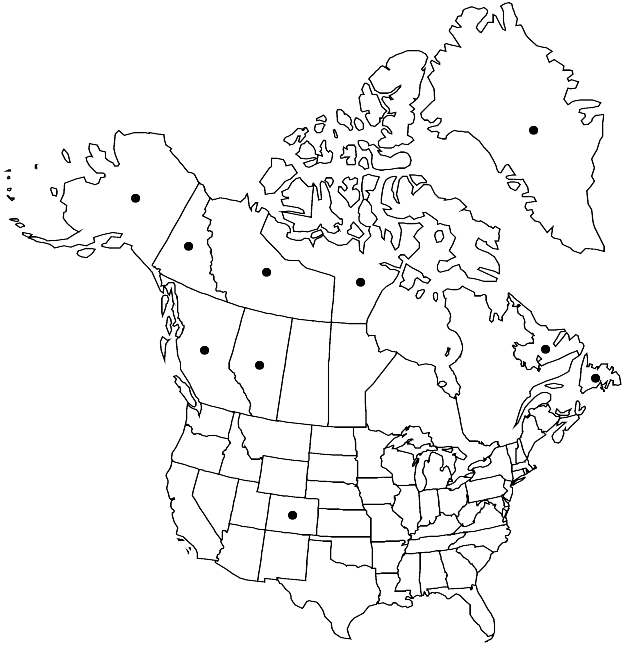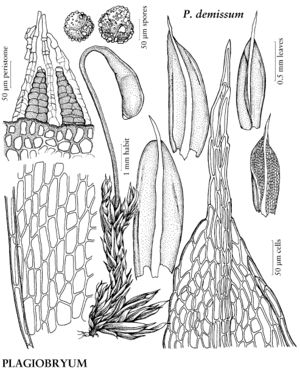Plagiobryum demissum
Öfvers. Kongl. Vetensk.-Akad. Förh. 19: 606. 1863.
Plants 0.6–1.5 cm, red to reddish-brown. Stems 0.3–1.2 cm, innovations short, not julaceous. Leaves of innovations erect to erect-spreading, ovatelanceolate to ovate, flat to slightly concave, 0.9–1.4 × 0.2–0.5 mm; margins recurved; apex slender, acute; costa ending in apex to distinctly excurrent, in transverse-section abaxial stereid band 2–4 cells thick, 2–5 adaxial cells in 1 or 2 layers; leaves on fertile shoots more distinctly lanceolate; proximal laminal cells 3–5: 1, walls thick; medial cells narrowly hexagonal or rhomboidal to rectangular, 12–20 µm wide mid leaf, 2.5–4.5:1, walls ± firm distally. Capsule pendulous, 2–5 mm, neck 0.5–1.2 times urn length; exostome yellowish to brown, to 1/2 endostome length, nearly smooth to distinctly striate throughout. Spores released in tetrads, (26–) 28–35 (–42) µm, strongly papillose, brown.
Phenology: Capsules mature late summer–fall.
Habitat: Moist, basic cliffs, humus soil in tundra
Elevation: low to high elevations (0-4200 m)
Distribution

Greenland, Alta., B.C., Nfld. and Labr., N.W.T., Nunavut, Yukon, Alaska, Colo., Europe, Asia
Discussion
Plagiobryum demissum has a highly disjunct distribution that is usually associated with mountainous areas. Surprisingly, the species is rarely recorded from most areas of the Canadian Arctic. It is easily recognized when fertile by the combination of reddish gametophytes and pendulous, zygomorphic and distinctly gibbous capsules. When sterile, the plants are inconspicuous and practically indistinguishable from small reddish Bryum species.
Selected References
None.
Lower Taxa
"narrower" is not a number."narrow" is not a number.
